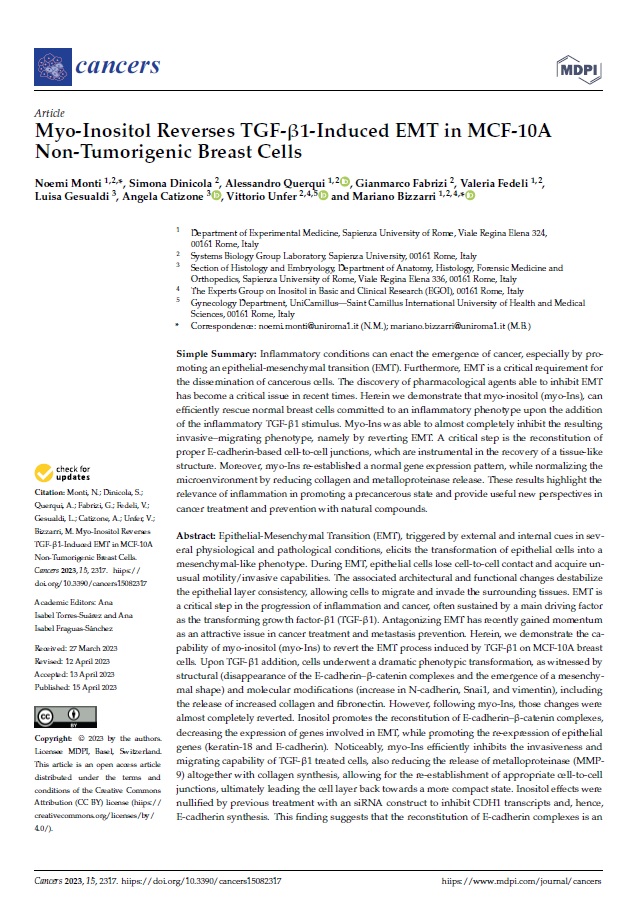Authors:
Noemi Monti, Simona Dinicola, Alessandro Querqui, Gianmarco Fabrizi, Valeria Fedeli, Luisa Gesualdi, Angela Catizone, Vittorio Unfer, Mariano Bizzarri
Epithelial-Mesenchymal Transition (EMT), triggered by external and internal cues in several physiological and pathological conditions, elicits the transformation of epithelial cells into a mesenchymal-like phenotype. During EMT, epithelial cells lose cell-to-cell contact and acquire unusual motility/invasive capabilities. The associated architectural and functional changes destabilize the epithelial layer consistency, allowing cells to migrate and invade the surrounding tissues. EMT is a critical step in the progression of inflammation and cancer, often sustained by a main driving factor as the transforming growth factor-β1 (TGF-β1). Antagonizing EMT has recently gained momentum as an attractive issue in cancer treatment and metastasis prevention. Herein, we demonstrate the capability of myo-inositol (myo-Ins) to revert the EMT process induced by TGF-β1 on MCF-10A breast cells. Upon TGF-β1 addition, cells underwent a dramatic phenotypic transformation, as witnessed by structural (disappearance of the E-cadherin–β-catenin complexes and the emergence of a mesenchymal shape) and molecular modifications (increase in N-cadherin, Snai1, and vimentin), including the release of increased collagen and fibronectin. However, following myo-Ins, those changes were almost completely reverted. Inositol promotes the reconstitution of E-cadherin–β-catenin complexes, decreasing the expression of genes involved in EMT, while promoting the re-expression of epithelial genes (keratin-18 and E-cadherin). Noticeably, myo-Ins efficiently inhibits the invasiveness and migrating capability of TGF-β1 treated cells, also reducing the release of metalloproteinase (MMP-9) altogether with collagen synthesis, allowing for the re-establishment of appropriate cell-to-cell junctions, ultimately leading the cell layer back towards a more compact state. Inositol effects were nullified by previous treatment with an siRNA construct to inhibit CDH1 transcripts and, hence, E-cadherin synthesis. This finding suggests that the reconstitution of E-cadherin complexes is an irreplaceable step in the inositol-induced reversion of EMT. Overall, such a result advocates for the useful role of myo-Ins in cancer treatment.

